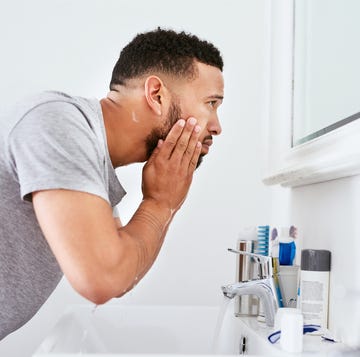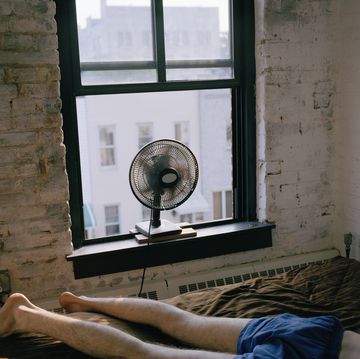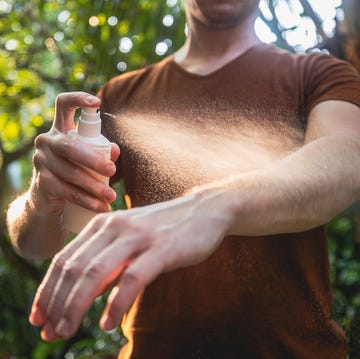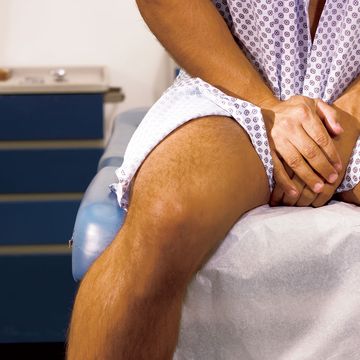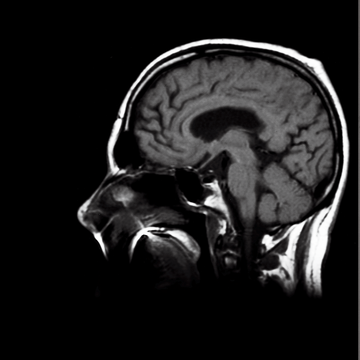You expect a bit of pain while getting a tattoo. But there may be some other unexpected consequences from the ink. A study in the journal Contact Dermatitis found that 10 percent of people who got tattoos had an adverse reaction such as itching, swelling, and delayed healing. What’s more, 6 percent reported a chronic reaction lasting more than 4 months.
Reactions are unpredictable, but a little knowledge can go a long way in preventing some uncomfortable—and sometimes serious—consequences. Here, 7 things to consider before you get inked.
(For 2,000 more tips on how to live your best life, check out The Better Man Project, the new book by the editor in chief of Men’s Health.)
Your skin condition might mess up a tattoo
Skin disorders such as psoriasis and eczema can cause serious problems. “Patients with psoriasis are at risk of experiencing something called a Koebner phenomenon, in which you can get more psoriasis in areas where there’s trauma to the skin,” says study author Marie Leger, M.D., Ph.D., a dermatologist at New York University Langone Medical Center says.
Besides being uncomfortable, the development of new, scaly lesions over the tat can compromise its appearance—sometimes for the long term, she adds.
People with eczema, on the other hand, tend to have skin that’s super-sensitive to things like trauma or other irritants, she says. So it’s possible that getting a tat can prompt an allergic response.
Certain meds can spike your infection risk
Tattooing boosts your risk of infection, so people with a vulnerable immune system need to be especially cautious, says Dr. Leger. This means those taking certain immunosuppressive drugs, like ones used to treat cancer, rheumatoid arthritis, multiple sclerosis, lupus, or Crohn’s disease.
A conversation with your doctor may also be warranted if you take blood thinners like aspirin or Plavix, since they can affect your body’s ability to clot. There have also been reports of impaired healing and scarring while on the acne drug Accutane, so it may be a good idea to wait at least 6 months after you’re finished the treatment to get inked, says Dr. Leger.
Related: 5 Over-the-Counter Medicines You Should Never Take Together
Your tat will be sun-sensitive
Freshly tattooed skin is extra sensitive to the sun—and that continues to some extent even after the skin has healed. UV light can react with the tattoo ink to create a painful sunburn-like reaction, according to the American Academy of Dermatology. This can happen with any color ink, but is most likely to occur if your tattoo contains yellow or red.
“Ideally, choose an area that’s rarely exposed to the sun or assess how you’re going to protect it with sunblock whenever you’re outside,” Dr. Leger says. Obviously, a tattoo on your back is harder to lather with sunscreen on your own. (Find out The Body Part Most Vulnerable to Skin Cancer.)
You also might want to rethink a particularly mole-y area: Getting a tattoo there can make it more difficult to detect changes that can signal skin cancer.
Sterilized packages are the only way to go
Have the artist open the needle package in front of you. “Nearly everything in a tattoo shop should be single-use, especially if it’s something that will be touching your skin such as the needles,” says Mike Martin, president of the Alliance of Professional Tattooists. Dirty needles can transmit serious infections such as hepatitis and HIV.
You’ll know that a tattoo parlor is the right place for you if you feel comfortable asking lots of questions. A particularly important one: How do you clean any reusable tools?
A reputable shop should be using an autoclave sterilizer, which uses heat, steam, and pressure to wipe out any bugs, Martin says. In addition, make sure the artist wears protective gloves and changes them any time he or she touches any object besides your skin.
The tattoo process is like a medical procedure
You wouldn’t show up for a root canal or mole removal drunk—and you shouldn’t for your tattoo, either. “Alcohol affects healing, it can make you bleed more, and it affects your ability to sit still,” Martin says.
In fact, researchers at Georgetown University Medical Center found that as few as two drinks can affect your platelets’ ability to clump together, which is essential for blood clotting.
“I tell my clients to make sure they get a good night’s sleep, are well-hydrated, and eat something about an hour before their procedure to help them stay calm and aid the healing process,” Martin says.
Shaving yourself isn’t a great idea
If your tat is going on any area covered with hair, stay away from a razor beforehand.
“A lot of times people who try to do it on their own can tear up the surface of the skin, which can increase their risk of infection and other problems,” Martin says.
Artists in Martin’s shop often use barber clippers and an electric razor to get the job done. “The artist will have more experience removing hair than most clients do,” he adds.
Related: 7 Tricks You Must Follow When Grooming Your Guy Parts
After-care is extra important
Ask for the instructions before the artist puts needle to skin. That way, you can have all of the stuff you’ll need—such as antibacterial ointment and lotion—on hand ahead of time. Following the after-care instructions will help ensure your tattoo heals properly so it’ll look just like you imagined it would.
For example, never pick or peel a tattoo. Doing so could affect the color. And only use water-based lotions or creams to moisturize the area, because petroleum-based products can cause the ink to fade.


